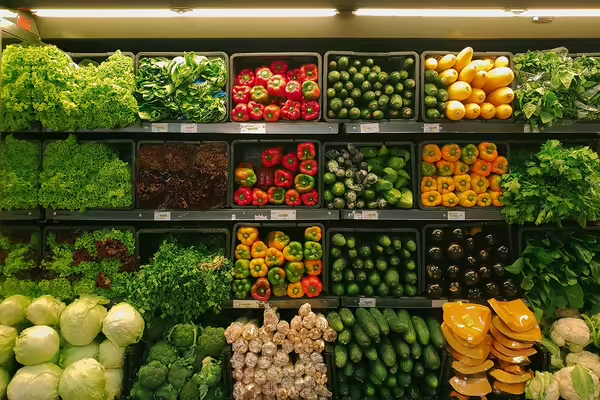
URBANA, Ill. — Illinoisans receive between $5.36 and $9.54 in return for each dollar spent helping Supplemental Nutritional Assistance Program participants make healthier choices through the state’s Eat.Move.Save. education programs. The benefits include healthcare cost savings, increased life expectancy, and higher lifetime earnings.
Altarum, an independent nonprofit health research organization, analyzed the return on the government’s annual $18 million investment in Illinois SNAP-Education, administered through the University of Illinois Extension and UI Health’s Chicago Partnership for Health Promotion. Individual benefits of obesity prevention, reduced chronic disease risk, and overall health improvements translate into long-term societal benefits: Decreased healthcare costs and morbidity lead to improved education and employment opportunities over a longer life expectancy.
Illinois SNAP-Ed programs are estimated to generate future societal benefits from $76 million to $135.3 million for a single year of programming. In that year, over 5,000 cases of obesity and nearly 600 cases of food insecurity among Illinois children and adults are prevented. To access additional highlights of the evaluation, visit go.illinois.edu/ILSNAPedImpacts.
For 30 years, Illinois SNAP-Ed has helped individuals, families, and communities facing economic challenges improve their health and food security. Over time, the program has expanded to include supporting organizations and communities in changing local systems, environments, and policies so healthy choices are easier to make.
“We are passionate about helping Illinois families eat healthy, move more, and save money,” says Trinity Allison, Extension senior program lead for Illinois SNAP-Ed. “Last year, Illinois SNAP-Ed provided programming in 100 counties serving more than 500 communities and reaching over 1 million Illinois residents.”
More than 59% of SNAP-Ed participants report increasing their physical activity, eating more fruits and vegetables, and experimenting with healthy recipes because of their involvement in these educational activities.
SNAP-Ed expands its effectiveness by working with local partners and coalitions to improve health and food security in Illinois communities. Partners note that by working towards common goals, both groups expand their reach and positively impact healthy eating, physical activity, food access, and obesity prevention in their community.
“Our partnership with Extension (SNAP-Ed) has really shown that this is a perfect partnership, and everything that Extension stands for ties directly into what we're trying to do with other organizations and addressing social determinants of health in our community,” says a partner.
The independent report confirms the life-changing impact SNAP-Ed staff witness in their daily interaction with SNAP recipients, says Jennifer McCaffrey, Extension assistant dean and program leader for family and consumer science programming, which includes SNAP-Ed.
“SNAP-Ed has been providing nutrition education to communities for 30 years,” McCaffrey says. “The staff members reside in the communities they serve and are committed to assisting in the development of stronger and more resilient communities.”
Executive summaries and full evaluation reports can be found on the Illinois SNAP-Education Impact website as they become available.
SOURCES: Jennifer McCaffery, Assistant Dean and Program Leader, Illinois Extension Family and Consumer Sciences; Caitlin Kownacki, Senior Program Lead, Evaluation, Illinois Extension
INTERVIEWS: Contact Dolan Klein, dolank@illinois.edu, 217-333-7958 to request specialist interviews on this topic.
ABOUT SNAP-Ed: Making healthy choices is not always easy, especially when families struggle financially. University of Illinois SNAP-Ed makes a difference by working with partners to reach Illinois families through engaging face-to-face classes or events, online resources, and healthy messaging strategies. SNAP-Ed participates in strategic local, regional, and statewide partnerships to transform the health of communities.
Illinois Extension leads public outreach for University of Illinois by translating research into action plans that allow Illinois families, businesses, and community leaders to solve problems, make informed decisions, and adapt to changes and opportunities. Illinois Extension is part of the University of Illinois Urbana-Champaign College of Agricultural, Consumer and Environmental Sciences.